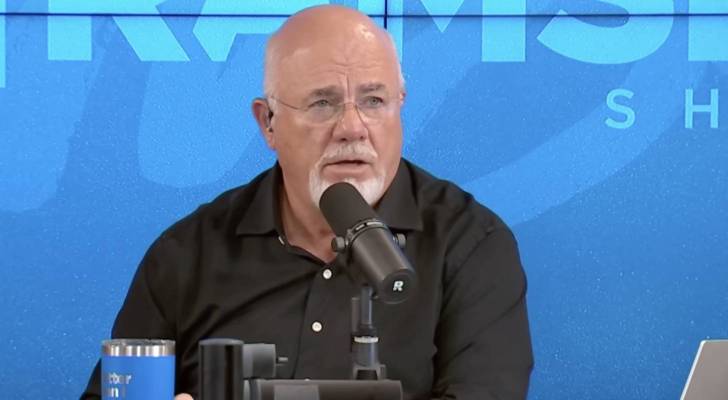
On a recent Ramsey Show call, Victoria from Texas asked how to handle her 14-year-old son’s plea to use his own money for online gambling. She said the teen claimed everyone at school was doing it.
“He’s lying,” host Dave Ramsey replied. “Not everyone is gambling. He’s exaggerating because he’s 14" (1). But he added that Victoria is right to be concerned.
“The second fastest-growing addiction in America is online gambling,” he said. “I’ve seen 32-year-olds lose $600,000, their marriages, their families, because they couldn’t stop.”
So what can a concerned parent do?
Juvenile jackpots: How many minors are gambling online?
There’s no exact tally of under-18 online gamblers in the United States, but research paints a shocking picture.
In 2023, The National Collegiate Athletic Association (NCAA) surveyed over 3,500 adults between 18 to 22, and found that 58% of them had placed at least one sports bet (2).
It turns out that Canadian parents need to share the same concerns as our southern neighbours: The British Columbia nonprofit NGO McCreary Centre Society conducted a 2023 survey that found 21% of B.C. youth aged 12 to 18 reported gambling or gaming at least once in the previous year to win money (3).
At a national level, a Canadian Community Health Survey (CCHS) from 2018 found 64.5% (18.9 million) of Canadian youth aged 15 and older reported gambling in the previous year. Of that number, 1.6% — almost 290,000 — were at moderate-to-severe risk of developing a gambling addiction (4).
But where does this risk come from? Well, Stephen Shapiro, director of the University of South Carolina’s master’s program in sports and entertainment marketing, told Healthbeat New York that teens are more vulnerable to online gambling because they’re more comfortable using apps and have lower financial literacy around the risks of debt (5).
Ramsey recommended that Victoria open her son’s eyes to the troubling consequences using the hard facts.
“If it’s sports betting, show him the data. UC San Diego studied over 700,000 online gamblers, 96% lost money. That’s not opinion, that’s math,” Ramsey said. “The house always wins. DraftKings can afford all those ads because you lose.”
Parents, he emphasized, must tie the lesson to love, not just rules, with a message like:
“There’s no chance I’m letting you do something that will destroy your life. Just because ‘everyone’s doing it,’ doesn’t make it right.”
It’s also important for parents to be aware of the factors turbo-charging youth gambling, and potential addiction:
- All-day access. Betting barriers are gone because of smartphones and apps. One tap, one swipe, and the money can vanish.
- Marketing that speaks their language. Sports-betting ads are everywhere, during games and across social feeds, and target youth with flashy marketing.
- Gaming’s dark lure. Upload a cool skin, loot box (6) or in-game purchase? That’s not just cosmetic, it’s often chance-based spending. Young, male gamers are disproportionately drawn to these temptations.
- Risk culture made easy. Young men have long shown high rates of risk-taking; now, with legalized, mobile betting, they’re a prime target.
How to talk about gambling with your kids
If you’re a worried parent, don’t freak out. Talk with your kids, and here’s how you make your words stick (7):
Start early and keep it age-appropriate. Explain how an in-game skin isn’t a harmless cosmetic, it’s a gamble with house odds.
Make it a conversation, not a lecture. Ask: “What games are you into? Ever been asked to bet? Heard ads on TikTok?”
Set the rules and stick to them. No gambling apps on their device. No credit-card access. Define this clearly in your family’s tech agreement.
Show your math. Play the “$5 a day” game: $5 × 365 = $1,825 – what else could they spend that money on or save up for?
Watch for warning signs. Mood swings, secret apps and lost money are all red flags. Do regular tech checks.
Get help early. If you suspect trouble, call a helpline, or find a counselor. Early intervention works. Check out these resources for more support.
- Canadian Mental Health Association (CMHA). Your provincial CMHA branch is a dedicated partner within the network of Canadian Mental Health Associations at the national, provincial and local level.
- Kids Help Phone: Canada’s only 24/7 e-mental health service offering free, multilingual and confidential support to all young people. Check out their page on gambling (8), go to kidshelpphone.ca or call 1-800-668-6868.
- Good2Talk provides free, confidential support services for post-secondary students in Ontario and Nova Scotia.
- Wellness Together Canada provides free online resources, tools, apps and connections to trained volunteers and qualified mental health professionals.
- COSTI Problem Gambling Services provides newcomers, refugees and those in need with comprehensive services in settlement, housing, mental health, domestic violence, as well as support for seniors, youth, and women.
- Responsible Gambling Council. An independent non-profit organization dedicated to problem gambling prevention.
- First Nations and Inuit Hope for Wellness Help Line Service is available in Cree, Ojibway, Inuktitut, English and French. Reach the service at 1-855-242-3310.
There’s no quick fix to solve a youth gambling issue. But armed with facts and open conversations, families like Victoria’s can fight back.
Article sources
We are committed to transparency and accountability, correcting errors openly and adhering to the best practices of the journalism industry. For more details, see our editorial ethics and guidelines.
The Ramsey Show (1); The National Collegiate Athletic Association (2); McCreary Centre Society (3); Statistics Canada (4); Healthbeat New York (5); Technology in Society (6); Children and Screens (7); Kid’s Help Phone (8)
This article provides information only and should not be construed as advice. It is provided without warranty of any kind.